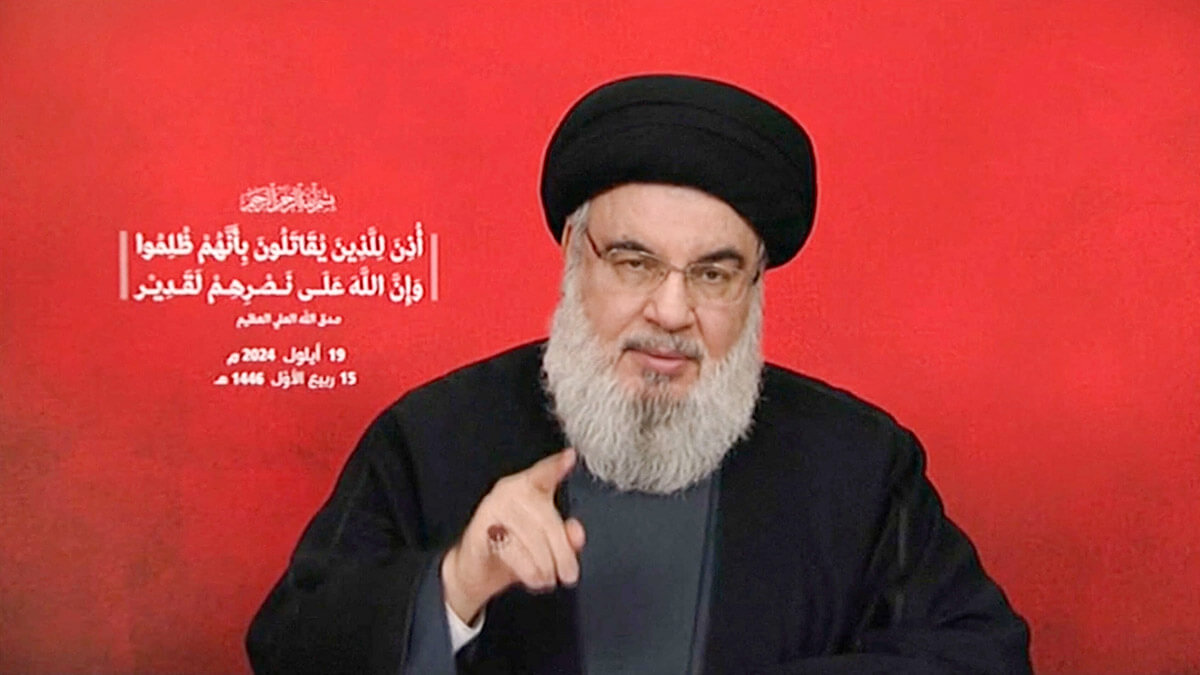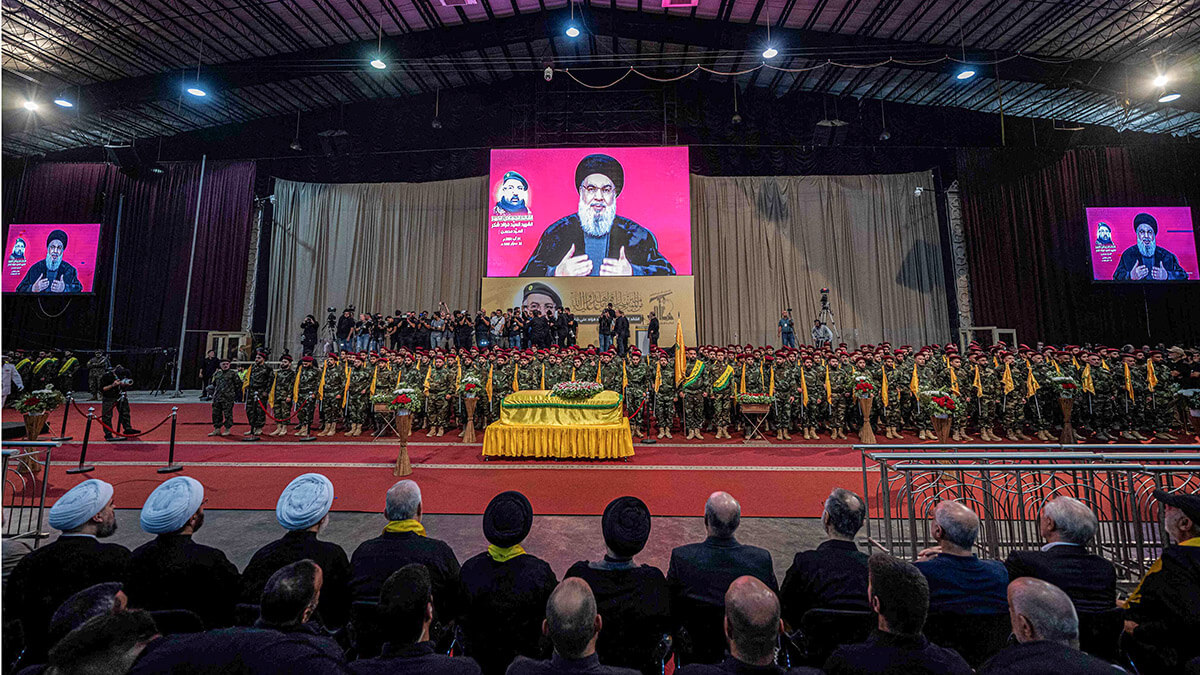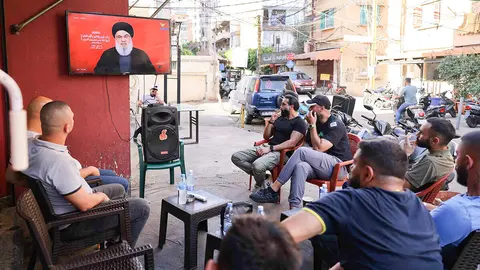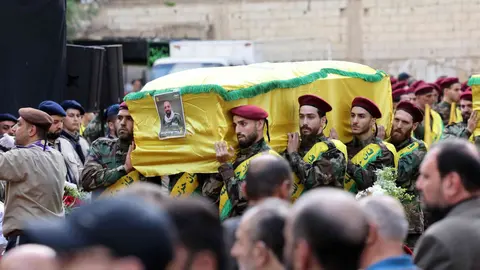Israeli forces eliminate Ibrahim Aqil, key Hezbollah leader in Beirut
Air strike on commander Ibrahim Aqil leaves 16 dead, 66 wounded and dozens missing

Israel strikes another blow with the death of Ibrahim Aqil. The Israeli executive shot down one of Hezbollah's leaders in an air strike in the southern suburbs of Beirut, heightening tensions between the two countries that have dragged on for a year.
The target was Ibrahim Aqil, Hezbollah's operations commander and a member of the group's military high command. Aqil, a member of Hezbollah's Radwan unit, was assaulted along with other comrades during a rally in a 10-storey building in the Al-Jamous district, Israeli sources said.
40 years ago to the day, Ibrahim Aqil helped direct a Hezbollah suicide bombing that targeted the American embassy in Beirut.
— Israel War Room (@IsraelWarRoom) September 20, 2024
Today, Israel eliminated him with a surgical airstrike in Beirut.
Justice is served.
🇮🇱🇺🇸 pic.twitter.com/pyS4XrS5Kl
Along with the commander, 16 people were killed and 66 injured in the attack. Minutes after the attack, several people went missing.
Aqil and his companions were enjoying their time in an underground room when the explosion occurred, making it difficult for rescue teams to recover their bodies, which could not be recovered for four hours.
Media reports said that Aqil, the target, was an important Hezbollah leader who leads the fighting in southern Lebanon. Such is his importance that the US State Department itself had offered a reward of up to $7 million for information leading to the capture of Aqil, who is a member of Hezbollah's Jihad Council and is accused of the 1983 bombings of the Marine barracks and the US Embassy.
Ibrahim Aqil tenía la sangre de muchas personas inocentes en sus manos tras décadas de terrorismo.
— Israel en Español (@IsraelinSpanish) September 20, 2024
En los últimos meses Hezbolá ha disparado más de 8.000 cohetes, misiles y drones explosivos hacia Israel.
En el momento que fue eliminado, Aqil estaba reunido con altos cargos de… pic.twitter.com/P0tIro3bSF
The attack destroyed a residential building in the vicinity of the tunnel of which it is not known how many people were inside. The targeted building is near the Al-Qaem mosque, which belongs to Hezbollah, and is located in an ‘area considered safe for the organisation’. This is the third attack on Hezbollah leaders in Beirut's southern suburbs, following the assassinations of Fuad Shukr last month and Saleh Al-Arouri of Hamas earlier this year.
The operation came at a time of heightened tension following thousands of massive explosions targeting Hezbollah communication devices, resulting in many deaths and injuries.
Tensions escalated after Hezbollah leader Hassan Nasrallah vowed to ‘retaliate against Israel in his latest speech’. He described the explosions that occurred during the match as ‘a major attack that will be punished appropriately’. Nasrallah warned that the real news is in what they are going to see, not what they are going to hear, and that they are keeping it secret.

According to media reports in Israel, Hezbollah has fired approximately 150 rockets in the last 24 hours, including 20 specifically aimed at the Meron airbase in the Upper Galilee.
Israel has confirmed that two soldiers were killed and nine others wounded in Hezbollah attacks on the Lebanese border. The army statement reported that the remaining injuries were caused by drone explosions aimed at the Western Galilee. Channel 14 reported that the army will increase its strikes in Lebanon, with a frequency of dozens a day, starting tonight.
Hezbollah member Youssef Mohammed Al-Sayyed was killed by Israeli shelling in Beit Lif. The terrorist organisation also mourned the loss of another member, Ali Hassan Al-Zein.

Hezbollah has used civilians as human shields, weaponising their homes and digging tunnels under them for decades. The Israeli army is working to secure the north of the country and allow residents to return to their homes, thus fulfilling the objectives of the war.
Israeli public broadcaster Kan reported that Israeli army chief Lieutenant General Herzi Halevi has approved battle plans for the northern front. Israeli Defence Minister Yoav Gallant said he has been thinking of different ways to fight Hezbollah on the northern border. Gallant said this stage of the war presents significant opportunities and risks.










